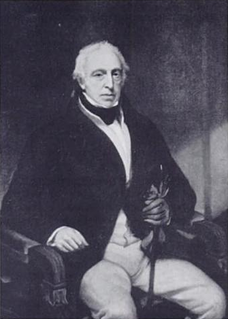A Quote by Hugh Elliot
Consequently, the first thing to be done in any search after philosophic principles is to travel over the special sciences with a view to extracting from them such information as is relevant to our purpose.
Related Quotes
Kant's treatments of rational theology and metaphysics were aimed primarily at theoretical questions. His attitude toward the pseudo-sciences of "special metaphysics" in Wolff and Baumgarten was always double-edged. He did see them as pseudo-sciences but also valued their doctrinal value and especially their regulative value for the empirical sciences. Like his views about religion, I don't think any of this is any longer viable in its original form.
In view of the fact that in any future world war nuclear weapons will certainly be employed, and that such weapons threaten the continued existence of mankind, we urge the governments of the world to realize, and to acknowledge publicly, that their purpose cannot be furthered by a world war, and we urge them, consequently, to find peaceful means for the settlement of all matters of dispute between them.
If we once admit that our life is here for the purpose of race-improvement, then we question any religion which does not improve the race, or the main force of which evaporates, as it were, directing our best efforts toward the sky.... Improvement in the human race is not accomplished by extracting any number of souls and placing them in heaven, or elsewhere. It must be established on earth, either through achievement in social service, or through better children.
To begin with, our knowledge grows in spots. The spots may be large or small, but the knowledge ever grows all over... What you first gain from them is probably a small amount of new information, a few new definitions, or distinctions, or points of view. But while these special ideas are being added, the rest of your knowledge stands still, and only gradually will you 'line up' your previous opinions with the novelties I am trying to instil, and modify to some slight degree their mass.
Those who assert that the mathematical sciences say nothing of the beautiful or the good are in error. For these sciences say and prove a great deal about them; if they do not expressly mention them, but prove attributes which are their results or definitions, it is not true that they tell us nothing about them. The chief forms of beauty are order and symmetry and definiteness, which the mathematical sciences demonstrate in a special degree.
Again, when we view a scene fleetingly, do we consciously see all the details even though we don't retain them, or do we not see them in the first place? Neurological information is crucial to deciding these questions. After all, they are so interesting precisely because unaided introspection cannot resolve them. Rather we need to know what is going on in the brain activities that constitute visual awareness.
The new tinge to modern minds is a vehement and passionate interest in the relation of general principles to irreducible and stubborn facts. All the world over and at all times there have been practical men, absorbed in 'irreducible and stubborn facts'; all the world over and at all times there have been men of philosophic temperament, who have been absorbed in the weaving of general principles. It is this union of passionate interest in the detailed facts with equal devotion to abstract generalisation which forms the novelty of our present society.
Our search for such [moral] principles can start with . . . the unconditional imperative to acknowledge every person as a person. If we ask for the contents given by this absolute, we find, first, something negative-the command not to treat a person as a thing. This seems little, but it is much. It is the core of the principle of justice.







































